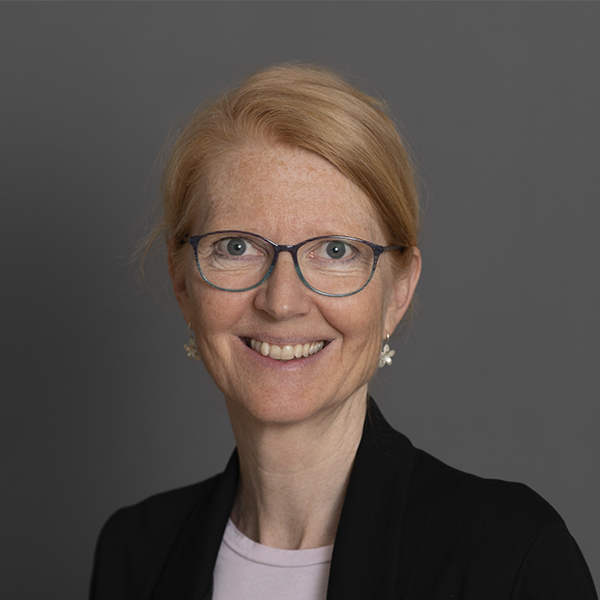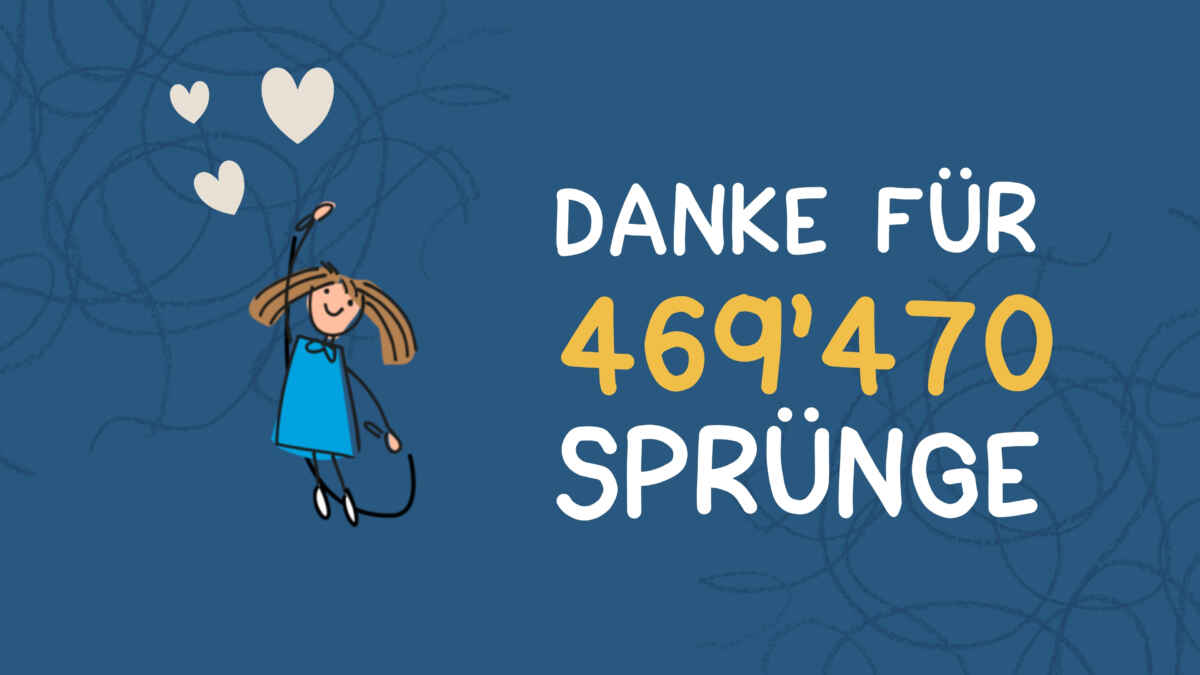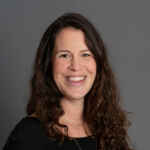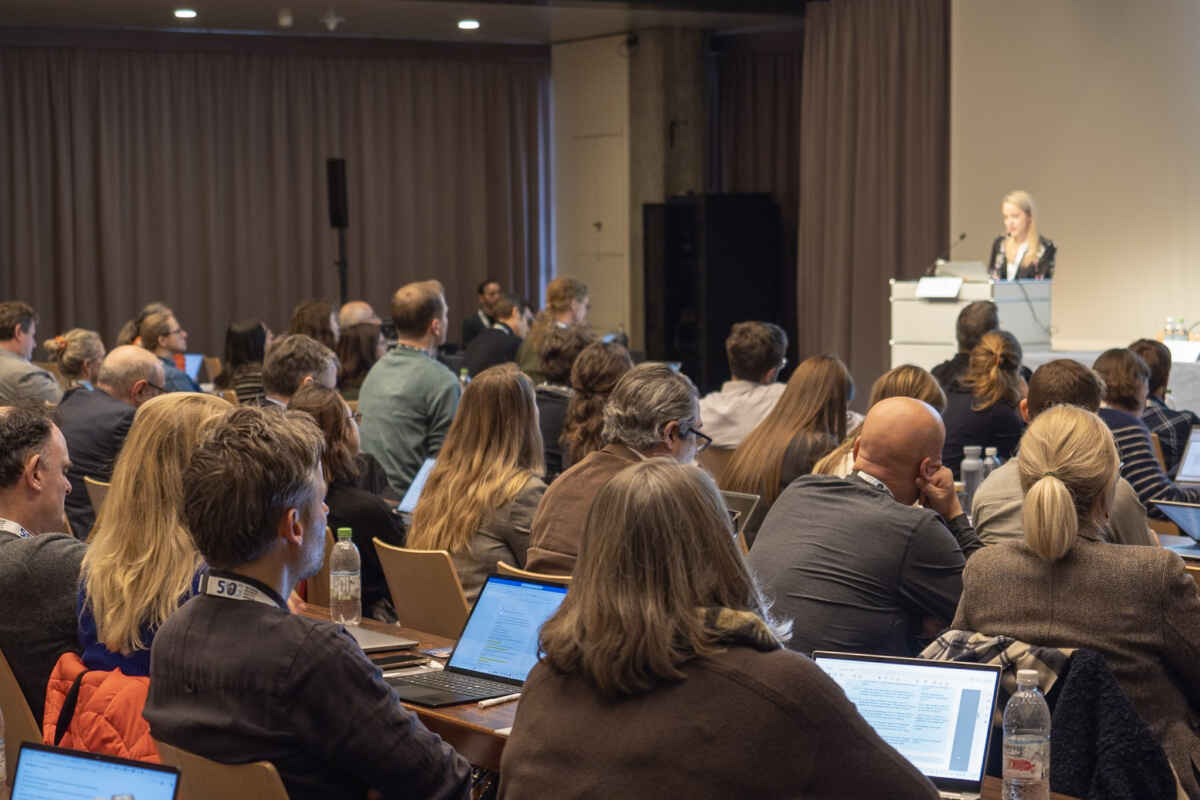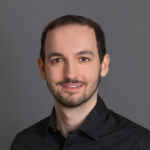Im Koordinationszentrum in Bern arbeiten insgesamt acht «Clinical Project Manager». Sie betreuen und koordinieren die klinischen Studien und Forschungsprojekte der SPOG.
Teamleiterin Lara Fux gibt darüber Auskunft, was diese Spezialistinnen und Spezialisten tun, damit die SPOG an ihren neun Mitgliedskliniken Studien zu Kinderkrebs anbieten kann.
Frau Fux, für wie viele Studien haben Sie aktuell die Verantwortung mit Ihrem Team?
Aktuell betreuen wir 64 Studien. Davon ist etwa die Hälfte zur Patientenrekrutierung offen. Die restlichen Studien sind entweder in Vorbereitung, das heisst, wir arbeiten daran, die Studien bald zur Patientenaufnahme eröffnen zu können, oder die Rekrutierungsphase ist abgeschlossen. Dann erhalten bereits eingeschlossene Patient:innen noch ihre gesamte Behandlung im Rahmen der Studien und werden im Anschluss daran nachbeobachtet. Danach werden die Daten ausgewertet.
Aktuell betreuen die Clinical Project Manager 64 Studien.
Welche Arbeiten übernimmt das Team der Clinical Project Manager der SPOG für die Kinderonkologinnen und Kinderonkologen in den Mitgliedskliniken?
Die Clinical Project Manager nehmen den Forschenden in der Klinik regulatorische und administrative Arbeit ab, sodass sie sich auf die Betreuung der Patientinnen und Patienten konzentrieren können. Beispielsweise übernehmen wir kollektiv für alle Mitgliedskliniken die Einreichungen und Berichterstattungen an die Schweizer Behörden. Dies müsste sonst jede Klinik einzeln machen. Die Studienkoordination ist zentralisiert und vereinheitlicht, was sie effizienter und qualitativ besser macht. Zusätzlich sind wir der Knotenpunkt zwischen den Mitgliedskliniken und den internationalen Studienzentralen, Sponsoren genannt. Es erleichtert den internationalen Sponsoren die Arbeit, wenn sie pro Land nur einen Ansprechpartner haben.
«Die Clinical Project Manager nehmen den Forschenden in der Klinik regulatorische und administrative Arbeit ab, sodass sie sich auf die Betreuung der Patientinnen und Patienten konzentrieren können.»
Weshalb sind die meisten Studien der SPOG internationale Studienprotokolle?
Krebs bei Kindern und Jugendlichen ist zum Glück sehr selten. Für die Forschung bedeutet die geringe Patientenzahl, dass es schwierig ist, in der Schweiz aussagekräftige Studien durchzuführen. Deshalb erhalten wir die Studienprotokolle meist von internationalen Sponsoren, beispielsweise aus Grossbritannien oder Deutschland. Die Studien werden in mehreren Ländern gleichzeitig durchgeführt, was die Patientenzahl erhöht. Die internationale Zusammenarbeit bringt die Kinderkrebsforschung schneller voran.
Jede Studie der SPOG hat eine nationale Studienleitung. Wie verläuft die Zusammenarbeit der Clinical Project Manager mit den «National Study Chairs»?
Die Zusammenarbeit ist besonders in der Phase der Eröffnungsvorbereitung sehr eng. Wir starten mit einem Kick-off-Meeting, bei dem der Clinical Project Manager und die Studienleitung die Studiendurchführung in der Schweiz besprechen und planen. Mögliche Themen können sein, welche Studienmedikamente für die Studie notwendig sind oder welche Analysen zur Diagnose durchgeführt werden müssen.
Die anschliessende Arbeitsaufteilung ist simpel: Die Studienleitung ist für alle medizinischen Aspekte zuständig und der Clinical Project Manager für die regulatorischen Fragen und das Qualitätsmanagement.
Wie oft steht Ihr Team mit den Mitgliedskliniken in Kontakt?
Die Clinical Project Manager sind täglich mit den Mitgliedskliniken in Kontakt. Beispielsweise, um Fragen zu klären oder neue Erkenntnisse und Protokolländerungen schnellstmöglich auch in der Schweiz umzusetzen. Die Zusammenarbeit mit den Kliniken erlebe ich als sehr produktiv und angenehm. Schliesslich verfolgen wir alle dasselbe Ziel – Kindern und Jugendlichen mit Krebs eine Zukunft zu geben.
«Wir verfolgen alle dasselbe Ziel – Kindern und Jugendlichen mit Krebs eine Zukunft zu geben.»
Weshalb braucht die Vorbereitung einer Studie relativ viel Zeit?
Besonders aufwendig sind die Verträge mit den internationalen Sponsoren. Ohne diese Verträge dürfen wir die Studie nicht bei den Schweizer Behörden einreichen und somit keine Patient:innen einschliessen. Aufgrund der unterschiedlichen Gesetze und Richtlinien in den verschiedenen Ländern dauert die Finalisierung der Verträge leider oft sehr lange.
Wie verläuft die Zusammenarbeit mit Swissmedic und den Ethikkommissionen?
Wir haben eine gut etablierte Zusammenarbeit mit Swissmedic und den Ethikkommissionen. Durch die langjährige Erfahrung kennen wir die Anforderungen dieser Behörden und können die Studiendossiers entsprechend vorbereiten. Bei Fragen zu Spezialfällen sind diese Behörden für einen konstruktiven Austausch erreichbar.
Weshalb ist die Kinderkrebsforschung so stark reglementiert?
Die Forschung am Menschen ist in der Schweiz durch eine umfassende Gesetzgebung geregelt. Diese Art der Forschung ist nur dann erlaubt, wenn sie vorab von den Behörden geprüft und bewilligt wurde. Die Grundlage hierfür ist das Schweizer Humanforschungsgesetz: Dieses hat zum Ziel, Würde, Persönlichkeit und Gesundheit der Patient:innen zu schützen. Kinder und Jugendliche gelten als besonders vulnerable Personen, weshalb die Forschung hier zusätzlichen Vorschriften unterliegt.
«Die Forschung am Menschen ist in der Schweiz durch eine umfassende Gesetzgebung geregelt. Diese Art der Forschung ist nur dann erlaubt, wenn sie vorab von den Behörden geprüft und bewilligt wurde.»
Wird die Arbeit im Koordinationszentrum auch überprüft?
Die SPOG organisiert am Koordinationszentrum selbst und an jeder Mitgliedsklinik regelmässig Audits. Diese werden von externen, unabhängigen Dienstleistern durchgeführt. Die Resultate aus den Audits unterstützen die SPOG dabei, die Qualität der Studiendurchführung hochzuhalten und kontinuierlich weiter zu verbessern.
Zudem haben sowohl die Schweizer Behörden als auch die internationalen Sponsoren das Recht, das SPOG-Koordinationszentrum und die Mitgliedskliniken jederzeit zu inspizieren. Swissmedic führt solche Inspektionen regelmässig durch.
Welche Veränderungen gab es in den letzten Jahren bei der Studienkoordination?
Die klinische Forschung ist – zu Recht – ein stark reguliertes Umfeld. Über die letzten Jahre wurden die nationalen und internationalen Gesetze sowie deren Umsetzung zunehmend strikter. Selten wird bei einer Überarbeitung der Gesetze oder der Richtlinien eine Anforderung weggelassen. Dadurch wird es anspruchsvoller, Studien durchzuführen, und der administrative Aufwand in der Klinik wie auch im Koordinationszentrum steigt.
Welche Arbeiten gibt es für die Clinical Project Manager noch, wenn eine Studie einmal eröffnet ist?
Wir betreuen die Studien durch alle Zyklen ihrer Durchführung. Nach der Studieneröffnung kann sich beispielsweise der Aufbau einer Studie ändern, ein neuer Studienarm wird eröffnet oder die Studie wird verlängert. Jede solche wesentliche Änderung reichen wir vorab zur Bewilligung bei den Schweizer Behörden ein. Zudem informieren wir die Behörden kontinuierlich über alle Sicherheitsaspekte der klinischen Studien. Dazu legen wir mindestens einmal jährlich einen Bericht vor.
Wie lange laufen Studien eigentlich?
Je nach Ziel einer Studie kann die Laufzeit sehr unterschiedlich sein. Klinische Studien, bei denen verschiedene Therapien getestet und verglichen werden, haben meist eine Rekrutierungsphase von etwa 5 Jahren. Darauf folgt noch eine Nachbeobachtungsphase der teilnehmenden Patient:innen von etwa 3 Jahren.
Allerdings ist es auch wichtig, mögliche Langzeitfolgen einer Krebserkrankung und deren Therapien zu erfassen. Projekte mit diesem Ziel können eine unbegrenzte Laufzeit haben.
Was passiert, wenn eine Studie an ihr Ende kommt?
Das Schliessen einer Studie beinhaltet mehrere Schritte. Zuerst wird die Rekrutierung beendet. Das bedeutet, dass keine neuen Patient:innen mehr in die Studie aufgenommen werden. Bereits eingeschlossene Patient:innen beenden ihre Therapie und werden noch für mehrere Jahre nachbeobachtet, um zu sehen, wie es ihnen geht. Sobald diese Nachbeobachtung abgeschlossen ist, wird die Studie endgültig terminiert. Zu diesem Zeitpunkt werden alle verfügbaren Daten ausgewertet und die Resultate der Studie veröffentlicht. Damit ist die Studie endgültig abgeschlossen.
Clinical Project Manager betreuen die Studien durch alle Zyklen ihrer Durchführung.
Wie werden die Studienresultate verbreitet?
Bei klinischen Studien muss innerhalb eines Jahres nach Ende der Studie ein Abschlussbericht erstellt werden, der alle Erkenntnisse der Studie enthält. Dieser Bericht wird den Ärzt:innen der Mitgliedskliniken zur Verfügung gestellt und muss bei den Schweizer Behörden eingereicht und zur Kenntnis genommen werden. Zudem werden die Studienresultate üblicherweise in wissenschaftlichen Journals veröffentlicht, die für alle Onkolog:innen zugänglich sind.
Neu gibt es auch Zusammenfassungen der Resultate klinischer Studien in Laiensprache. Sie werden auf der Plattform zur Humanforschung in der Schweiz veröffentlicht.
Welches sind die eher schwierigen Seiten bei der Arbeit als Clinical Project Manager? Was ist schön?
Das Schönste am Clinical Project Management ist, dass krebskranke Kinder und Jugendliche durch unsere Arbeit Zugang zu den bestmöglichen Therapien nach neustem Wissensstand erhalten. Dieser Gedanke ist im Alltag sehr motivierend und hilft beim produktiven Arbeiten.
Frustrierend ist, wenn diese Teilnahme nicht ermöglicht werden kann, weil sich Studieneröffnungen aufgrund von Vertragsverhandlungen verzögern.
«Das Schönste am Clinical Project Management ist, dass krebskranke Kinder und Jugendliche durch unsere Arbeit Zugang zu den bestmöglichen Therapien nach neustem Wissensstand erhalten.»
Lara Fux
Teamleiterin Clinical Project Management im SPOG-Koordinationszentrum
Clinical Project Manager
Die Clinical Project Manager im SPOG-Koordinationszentrum betreuen und koordinieren klinische Studien und Forschungsprojekte insbesondere regulatorisch. Sie kümmern sich um die komplexe und kontinuierliche Abstimmung mit den internationalen Partnern und tragen viel Verantwortung für die Gesetzeskonformität der Studiendurchführung in der Schweiz. Clinical Project Manager brauchen einen natur- oder gesundheitswissenschaftlichen Hintergrund, damit sie die Studiendokumente und die Abläufe der klinischen Forschung verstehen.
Veröffentlicht 27.05.2025
Brigitte Casanova
Brigitte Casanova begleitet Kommunikationsprojekte der SPOG, als Germanistin ergänzt sie das naturwissenschaftlich ausgerichtete Team des Koordinationszentrums.
Weitere Artikel von Brigitte Casanova
